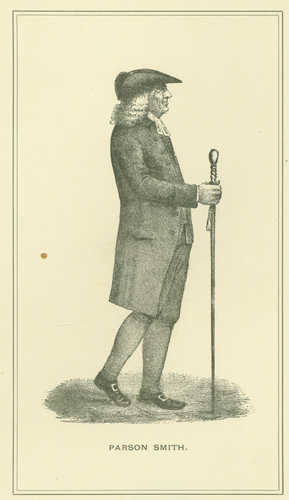Keywords: waldo
Item 22525
Samuel Waldo letter to William Pepperrell, 1748
Contributed by: Maine Historical Society Date: 1748 Location: Portland; Kittery Media: Ink on paper
Item 10097
Contributed by: The General Henry Knox Museum Date: 1786 Media: Ink on paper
Item 85848
Dwelling, Waldo Street, Portland, 1924
Owner in 1924: Heirs of Emma E. Watts Use: Dwelling - Single family
Item 82265
Assessor's Record, Garage, Waldo Street, Portland, 1924
Owner in 1924: Alfred L. Doucette Use: Garage
Item 109846
House for Mr. Waldo Pettingill, Rumford, 1893
Contributed by: Maine Historical Society Date: 1893 Location: Rumford Client: Waldo Pettingill Architect: George M. Coombs
Item 109347
House - Lake Kezar for William Bittles Esq., Lovell, 1925-1928
Contributed by: Maine Historical Society Date: 1925–1928 Location: Lovell Client: William J. Bittles Architect: John Calvin Stevens and John Howard Stevens Architects
Exhibit
The Waldo-Hancock Bridge is in the process of being dismantled after over 70 years of service. The Maine State Archives has a number of records related to the history of this famous bridge that are presented in this exhibition.
Exhibit
The Life and Legacy of the George Tate Family
Captain George Tate, mast agent for the King of England from 1751 to the Revolutionary War, and his descendants helped shape the development of Portland (first known as Falmouth) through activities such as commerce, shipping, and real estate.
Site Page
Thomaston: The Town that Went to Sea - Henry Knox: Land Dealings
"… my wife, all the money which father Flucker and Waldo squeased out of the Broad-Bay Germans (settlers of the Waldo Patent in Waldoboro)” and “I…"
Site Page
View collections, facts, and contact information for this Contributing Partner.
Story
Reverend Thomas Smith of First Parish Portland
by Kristina Minister, Ph.D.
Pastor, Physician, Real Estate Speculator, and Agent for Wabanaki Genocide
Story
How the first chapter Veterans for Peace was founded in Maine
by Doug Rawlings
Veterans for Peace was founded in Maine and is now an international movement
Lesson Plan
Longfellow Studies: Longfellow Amongst His Contemporaries - The Ship of State DBQ
Grade Level: 9-12
Content Area: English Language Arts, Social Studies
Preparation Required/Preliminary Discussion:
Lesson plans should be done in the context of a course of study on American literature and/or history from the Revolution to the Civil War.
The ship of state is an ancient metaphor in the western world, especially among seafaring people, but this figure of speech assumed a more widespread and literal significance in the English colonies of the New World. From the middle of the 17th century, after all, until revolution broke out in 1775, the dominant system of governance in the colonies was the Navigation Acts. The primary responsibility of colonial governors, according to both Parliament and the Crown, was the enforcement of the laws of trade, and the governors themselves appointed naval officers to ensure that the various provisions and regulations of the Navigation Acts were executed. England, in other words, governed her American colonies as if they were merchant ships.
This metaphorical conception of the colonies as a naval enterprise not only survived the Revolution but also took on a deeper relevance following the construction of the Union. The United States of America had now become the ship of state, launched on July 4th 1776 and dedicated to the radical proposition that all men are created equal and endowed with certain unalienable rights. This proposition is examined and tested in any number of ways during the decades between the Revolution and the Civil War. Novelists and poets, as well as politicians and statesmen, questioned its viability: Whither goes the ship of state? Is there a safe harbor somewhere up ahead or is the vessel doomed to ruin and wreckage? Is she well built and sturdy or is there some essential flaw in her structural frame?


















